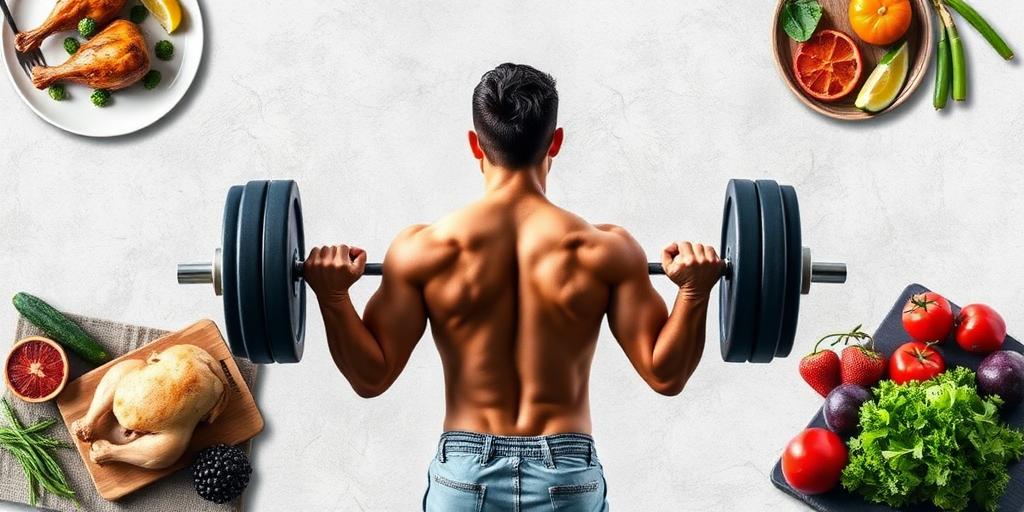Weightlifting Nutrition: Diet Plan for Strength
Fueling your body correctly is essential for maximizing strength gains when weightlifting. This guide provides a comprehensive diet plan to support your weightlifting goals.
Macronutrient Breakdown
- Protein (1.6-2.2g per kg of body weight): Vital for muscle repair and growth. Good sources include chicken, fish, beef, eggs, and protein supplements.
- Carbohydrates (4-5g per kg of body weight): Provide energy for intense workouts. Opt for complex carbs like brown rice, quinoa, oats, and sweet potatoes.
- Fats (0.8-1g per kg of body weight): Support hormone production and overall health. Choose healthy fats from sources like avocados, nuts, seeds, and olive oil.
Sample Diet Plan
Breakfast: Oatmeal with protein powder and berries.
Mid-Morning Snack: Greek yogurt with nuts.
Lunch: Chicken breast with brown rice and vegetables.
Pre-Workout: Banana with almond butter.
Post-Workout: Protein shake with creatine.
Dinner: Salmon with quinoa and steamed broccoli.
Evening Snack: Casein protein or cottage cheese.
Hydration
Drink plenty of water throughout the day to stay hydrated and support muscle function. Aim for at least 3-4 liters of water daily, especially around workouts.
Supplementation
Consider incorporating supplements like creatine, whey protein, and BCAAs to enhance performance and recovery.
Meal Timing
Consume a balanced meal 2-3 hours before workouts and a protein-rich meal within an hour after training to optimize recovery and muscle growth.
Key Takeaways
A well-structured nutrition plan is crucial for weightlifting success. Prioritize adequate protein intake, complex carbohydrates, and healthy fats, along with proper hydration and strategic supplementation.
Disclaimer: Consult with a healthcare professional or registered dietitian before making significant changes to your diet.









